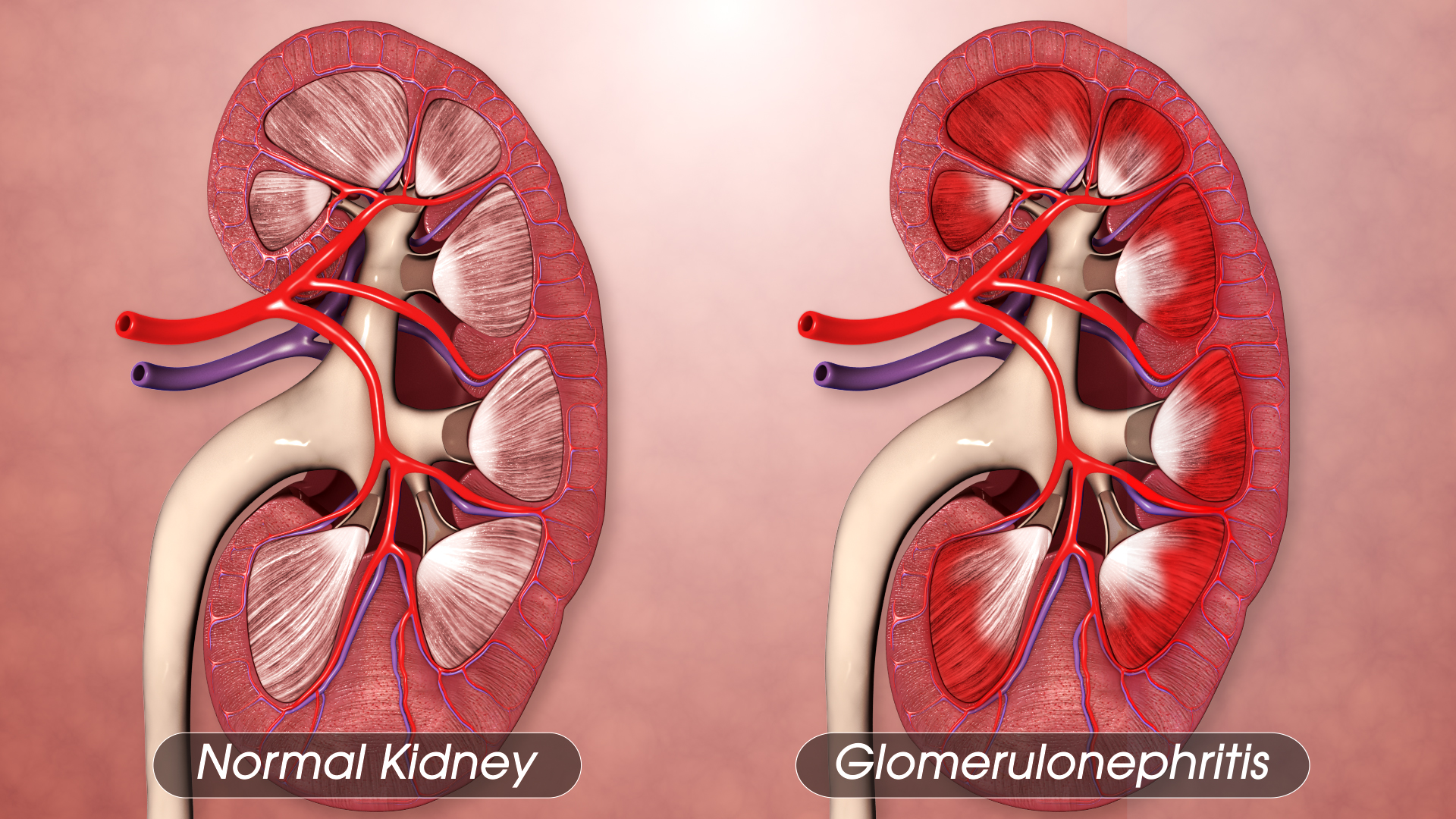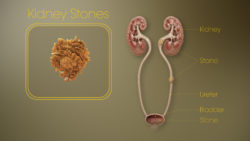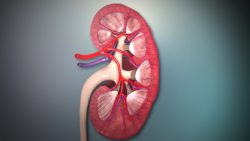The inflammation of the tiny filters in the kidneys (glomeruli) is termed as glomerulonephritis. Glomeruli functions to get rid off the electrolytes, excess fluid, and waste from the bloodstream and pass them into the urine. This condition could develop in both acute and chronic ways.

It may occur on its own or as part of another disease, such as diabetes or lupus. Severe or prolonged inflammation associated with this condition may cause damage to the kidneys.
Symptoms
It depends on the underlying cause and whether the form of the condition is acute or chronic.
Some of the usual signs and symptoms for Glomerulonephritis are listed below:
- Pink or cola-colored urine from RBC in the urine
- Foam in the urine because of high protein
- Hypertension
- Fluid retention with swelling in either face, feet, hands, and abdomen
Causes
Many conditions may be the cause of glomerulonephritis. It some cases it could be genetic in families and other times the cause is not well known. Some of the conditions that may result in the inflammation of the kidneys' glomeruli are highlighted below:
Immune diseases
- Lupus
- IgA nephropathy
- Goodpasture's syndrome
Infections
- Post-streptococcal glomerulonephritis
- Viral infections
- Bacterial endocarditis
Vasculitis
- Polyarteritis
- Granulomatosis with polyangiitis
Treatment
The treatment of the condition and its outcome depends on a few aspects:
- Whether the disease onset is acute or chronic
- The type and severity of your signs and symptoms
- The primary underlying cause
Some cases of acute condition, specially the ones which follow a strep infection, might improve on their own and require no treatment. In cases where there is an underlying cause, such as high blood pressure, a bacterial or viral infection or an autoimmune disease, the treatment will be directed to the underlying cause.
The goal of treatment is usually to protect the kidneys from further damage.
For acute glomerulonephritis and acute kidney failure, dialysis is generally helpful to remove the excess fluid and control high blood pressure. Kidney dialysis and kidney transplant are the common long-term therapies for end-stage kidney disease.
Disclaimer: The information in no way constitutes, or should be construed as medical advice. Nor is the above article an endorsement of any research findings discussed in the article an endorsement for any of the source publications.
Sources-
- https://www.mayoclinic.org/diseases-conditions/glomerulonephritis/symptoms-causes/syc-20355705
Kidney Stones (Scientific Name: Renal Calculus) results from an amassing of dissolved minerals that accumulate on the inner surface of kidneys. Depending on the amount of deposit, these stones can grow as big as a golf ball.
Read More..
The kidneys are a pair of bean shaped organs, located on either side of the spine, below the ribs, behind the belly. Each kidney is approximately the size of a large fist.
Read More..











